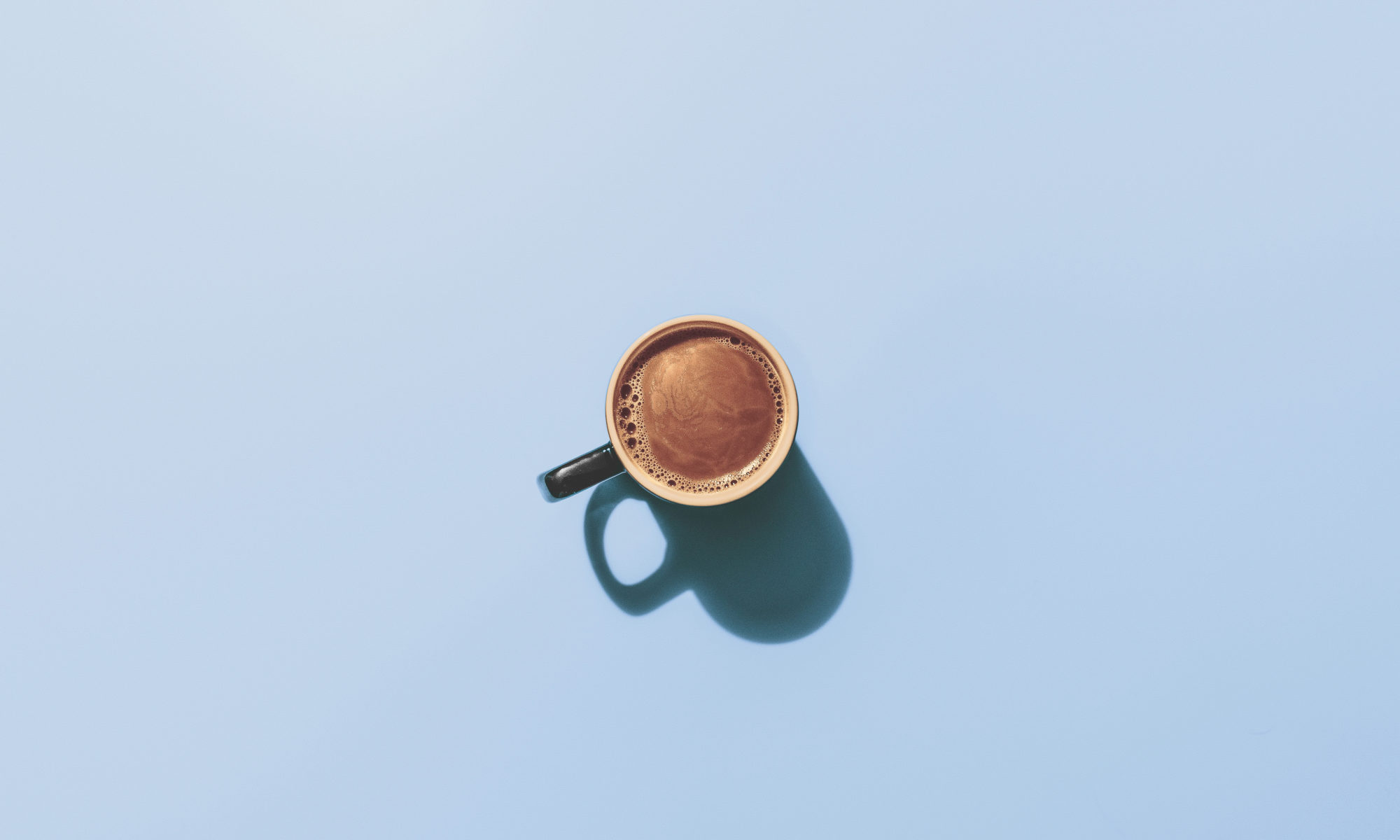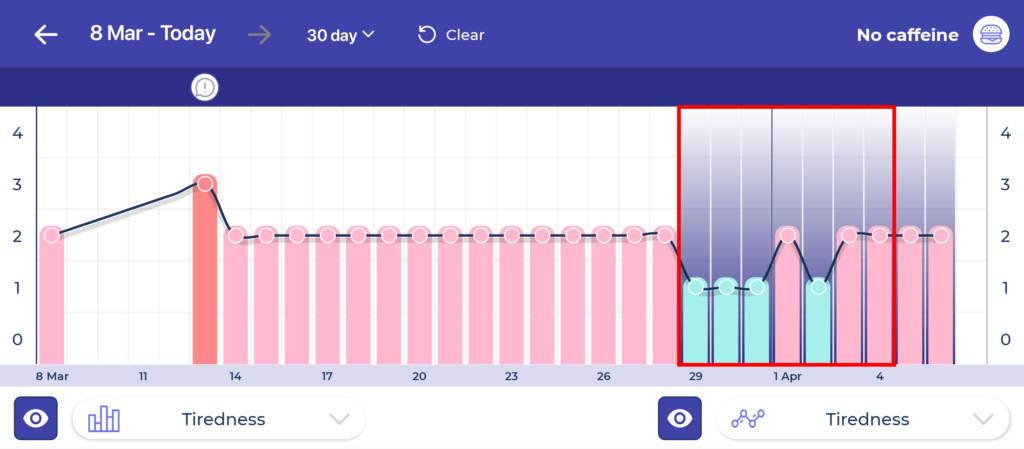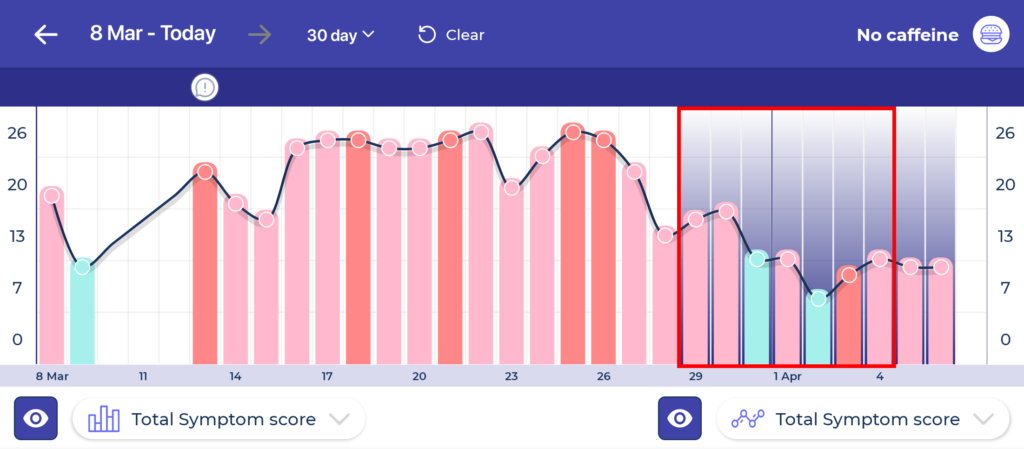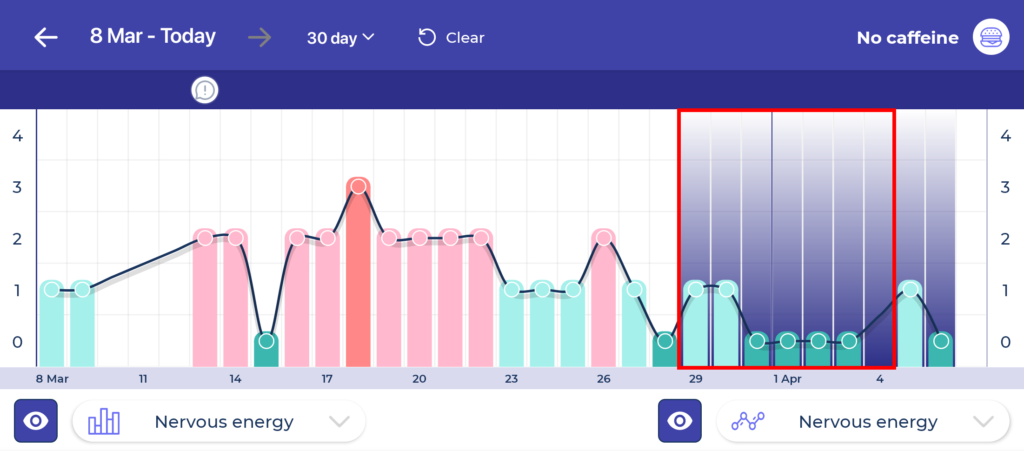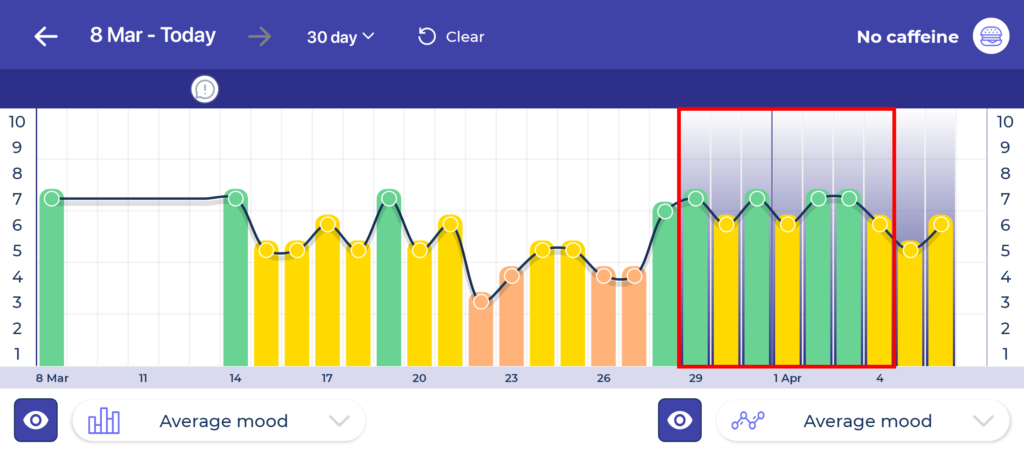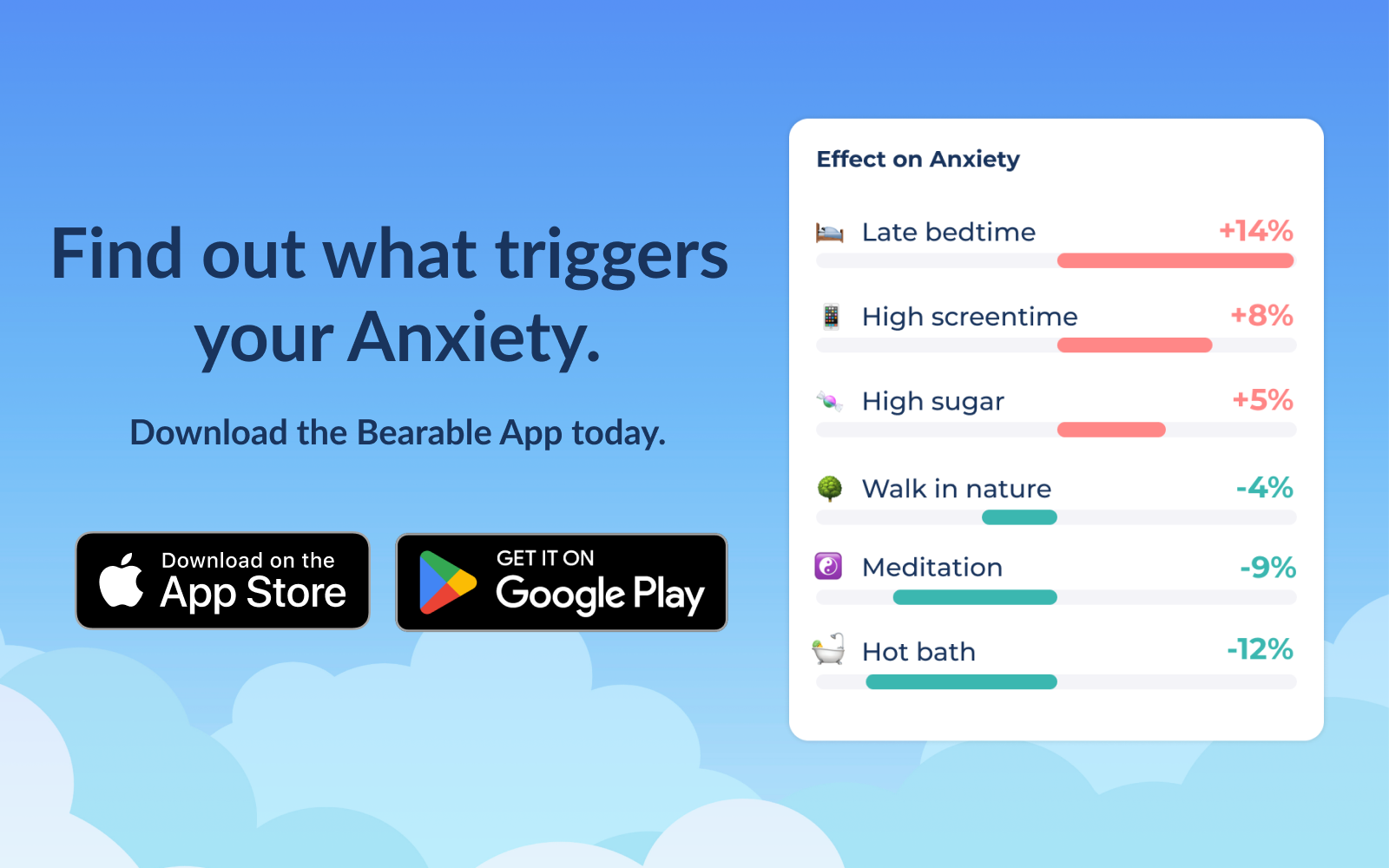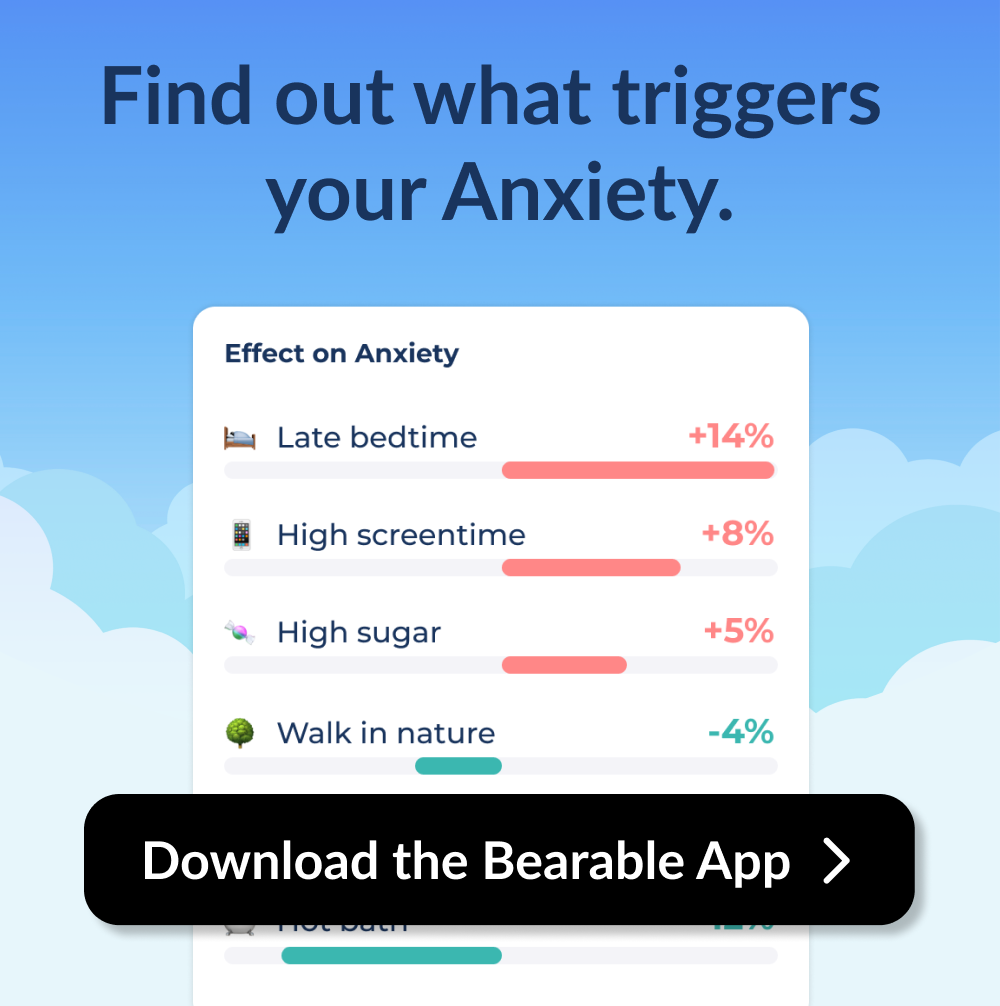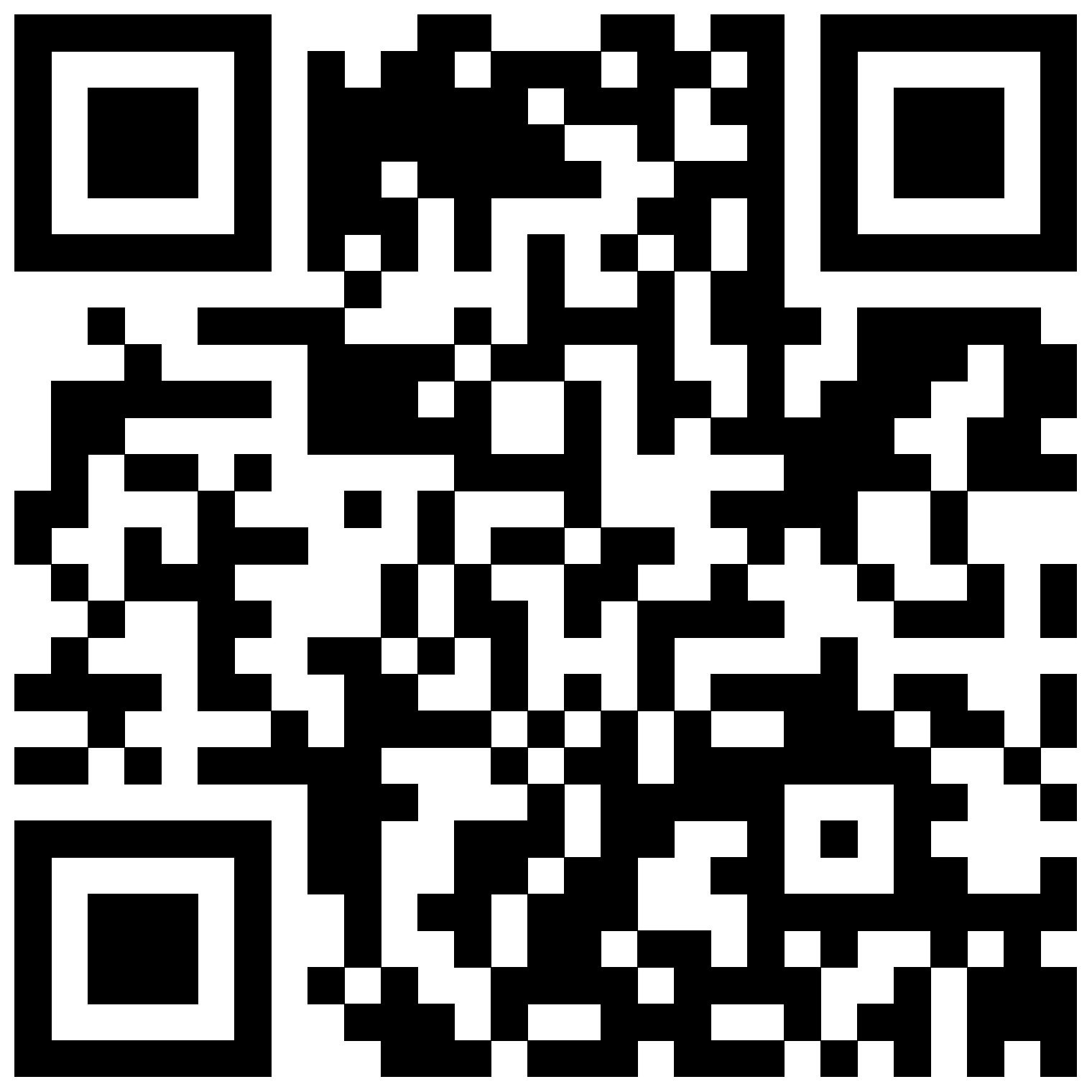☕ If you’re anything like me, then having a minimum of one cup of coffee (or tea) per day is part of your normal routine. In fact, we’re not alone; in the UK, people drink 95million cups of coffee per day. A number that’s been seen a dramatic rise in the last ten years.
A number of years ago, I relied so heavily on caffeine to help me with fatigue, tiredness, imposter syndrome and burnout. Things I now recognise as symptoms of anxiety. That I would drink almost three litres of iced, black coffee a day. Somehow I thought this could only be a good thing at the time… thanks Starbucks.
As I’ve begun to learn more about my mental health and recognised that I have all the symptoms of Depression, Generalised Anxiety, Social Anxiety, Insomnia, Body Dysmorphic Disorder (BDD), and Disordered Eating. The more I’ve begun to question – and research – my everyday routines, activities, and the impact they might be having on my health.
Previously unbeknown to me, the NHS actively recommends that people with Anxiety avoid caffeine. A hard thing to do when everyone and their mother is offering you a cup of tea every 15 minutes. The most British of British people problems and also a microcosm of the issue; how are other people meant to know that something as normal as caffeine might be terrible for my mental health If I don’t even know this about myself?
“Drinking too much caffeine can make you more anxious than normal. This is because caffeine can disrupt your sleep and also speed up your heartbeat.
If you’re tired, you’re less likely to be able to control your anxious feelings.”
I’ve been tracking many aspects of my health with Bearable since December 2020, and often use it to test the impact on new habits, treatments, and to generally understand how my daily activities might be impacting my wellbeing.
Recently, I’d noticed that some of the symptoms of my Anxiety were having a negative impact on my performance at work.
Specifically, I’d feel more self-conscious about the contributions I made and things I said. I found that I often made silly mistakes that were possibly the result of nervous energy or feeling anxious about meeting expectations. I also started slipping into the habit of giving myself increasingly challenging amounts of work, a common symptom of imposter syndrome.
All of this culminated conveniently into the decision to quit caffeine for at least a week. So that I could track the results using Bearable and hopefully discover a new way to take the edge off some of the more frustrating symptoms of my anxiety.
7 Days Going Caffeine Free.
I’ll keep the day-to-day experience brief as you can watch the video above to go on that journey with me. Instead, I’ll give a quick outline of the main things that I noticed during the week.
Day One: I was grumpier and more tired than usual, and didn’t see any immediate benefit.
Day Two: I slept a lot longer than usual but I didn’t feel better rested for it.
Day Three: This is when I first started to notice that my nervous energy was a bit less dramatic than normal. With a couple of better nights of sleep under my belt, I was also in a better mood than normal.
Day Four: I was still feeling tired most of the time despite sleeping more and started to wonder if anything else might be impacting the experience. I was also taking more time with my work and better at catching some of the errors that might have previously slipped past me.
Day Five: I found I was more at ease and talkative on a team call and felt less anxious about the things I said.
Day Six: After a terrible night’s sleep I was unsure if caffeine was improving my sleep or helping my insomnia at all. However, I did feel like some of my most frustrating symptoms of anxiety were less severe than normal.
Day Seven: Aware that my intermittent fasting, as well as some other variables, might be impacting the results I committed to continuing the test for longer. Mostly because I felt it was having a positive impact but wanted to learn more.
Without health tracking, it was hard to gauge the true impact of the experience on my symptoms. Which led me to reflect on the fact that I’ve often left decisions about my health totally down to guesswork.
As someone that has made fairly specific diet, exercise, and lifestyle choices. I realised these had all been made without any true understanding of the real impact they have on my health.
What did the data say?
My average Mood score improved by 20% and I was more likely to report feeling good or relaxed. Although I was also more likely to report being grumpy.
My average Symptom score – this is the score from across all the symptoms I track, not just anxiety – dropped by 55%.
My Sleep Quality remained the same as before the experiment – which was a surprise to me – but my Sleep Quantity improved by more than 10%.
In terms of the specific symptoms of my anxiety:
- Tiredness stayed mostly the same as before the experiment. I reported 4 days of mild symptoms and 4 days of moderate symptoms.
- Insomnia was generally better but also much worse on a couple of days. I reported 5 days with mild to no symptoms and 2 days with moderate to severe symptoms.
- Doubting my contribution improved dramatically with 5 days of mild to no symptoms and two days of moderate symptoms. Normally I report this as a moderate symptom.
- Question own thoughts (self-doubt) improved significantly with 6 days of mild to no symptoms and 1 day with moderate symptoms.
- Avoiding communicating / everyday activities improved with 5 days of mild symptoms and 1 day of moderate symptoms. Typically I reported this as a moderate symptom.
- Questioning Conversations / Things I have said improved with 5 days of mild symptoms and 2 days of no symptoms.
- Nervous Energy was the biggest change I experienced with 5 days of no symptoms and 2 days of mild symptoms.
How do I feel about my caffeine-free diet after this experience?
First and foremost, I think it’s important to point out that I don’t think that it’s fair to draw any conclusions about how this might impact someone else’s health. This experiment was also only run for seven days and was almost certainly impacted by variables such as changes in my eating habits and the weather.
Nonetheless, I DO think that going caffeine-free has a positive impact on some of the symptoms of my anxiety. Especially some of my negative thoughts and – notably – my nervous energy. The results from Bearable back this up pretty strongly too.
I’ve also learned that drinking caffeine – and especially coffee – mostly just makes me feel less tired rather than more alert or focused. An insight that I also came across in this article that, similarly, takes a look at the impact of caffeine on anxiety.
Most importantly, this experience made me realise how inaccurate it is to guess the impact of something like going caffeine-free. The first-hand experience seemed far less positive because of how tired I was left feeling, but the data underlined how significant the impact on my symptoms had really been.
Ultimately, I’ve made the decision to continue to live without caffeine and track the results.
However, I’m also interested in testing other everyday activities to discover how they might be negatively impacting the symptoms of my different health conditions.
The main takeaway from this is that I shouldn’t assume that something is good for my health without first questioning it objectively. I also wonder how much money I might have saved by drinking fewer Trenta Iced Americanos.
Running your own experiments with Bearable?
If you enjoyed this experiment or have run any of your own we’d love to hear about it. You can reach out to us on Instagram at @BearableApp or post your own experiments using bearable using #BearableApp.
—
Photo credit: Photo by Jakub Dziubak on Unsplash

